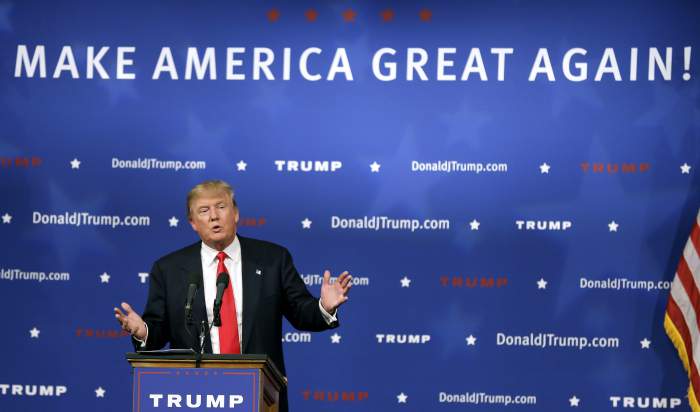The leader in the polls to be the Republican Presidential nominee was Donald Trump, previously most famous for his role hosting The Apprentice. Trump mentions or tweets his polling statistics approximately every five minutes; it is like he has a chip in his brain constantly feeding him the latest results. His high poll numbers did not translate to a victory in Iowa, which will likely prove disastrous for Trump because his campaign has emphasized polls and results over policy. Though his campaign is also based on fear-mongering and exploiting his appeal as a party outsider, much of his ‘presidential’ image is based on his self-portrayal as a winner. Without this, he barely stands out from the pack.
The premise of the Trump campaign is that America is losing, and that Trump is a winner. The issue Trump will face is that focusing his campaign on his own popularity will only work if he remains popular. His campaign is therefore more dependent on polls than that of someone like Vermont Senator Bernie Sanders, who emphasizes specific policy issues such as income inequality. Someone passionate about income inequality may be compelled to vote for Sanders even if he is second in the polls. Trump supporters may be less likely to vote for Trump if he slips in the polls, as they will have a plethora of other right-wing candidates to choose from.
Every day Trump tweets the results of several polls done by different news organizations. He leads his speeches with them, even going so far as to say, “I think I made polls famous.” A typical Trump interview begins with him showing off his poll numbers, perhaps most notoriously for his interview with GQ.
He has done a masterful job of deflecting criticism by publicizing his poll numbers, with the goal of showing that his attitude and positions are winning among voters. When Jeb Bush said that Trump was a bully, Trump responded that he was polling at 42 per cent while Jeb was at three per cent. By Trump’s logic, it didn’t matter if he was a bully because he was polling well. When criticized for his immigration plans, Trump simply responded that he polls very well amongst Hispanics and Muslims—a claim that has been disputed, to put it generously. In justifying his behaviour by claiming that people like it, Trump and his campaign team fail to do more than curry favour.
When contenders claim that they are the best one for the job because they stand the greatest chance of winning, red flags should go up in voters’ minds. The logic of his technique is highly circular. He is selling himself as qualified for the presidency because he is a winner who is doing well in the polls. Trump can only be a good candidate as long as he is a winner. He tells voters, “vote for me, because I will make the country win again, because I’m a winner. Why am I a winner? Because so many of you are voting for me!” By making his numbers and personality the bedrock of his campaign, Trump has distorted what it means to be a competent leader. After his loss in Iowa, Trump chose to complain about how the voting was unfair instead of focusing on his case for the presidency.
Trump is reliant on poll numbers, and they have certainly helped his chances. If the polls are right, Trump will be able to further his image as a winner; however, Trump will struggle to present himself as a winner now that he underperformed the polls in Iowa. Trump’s campaign has made winning a main theme, so losing even on a small level is unsustainable. Now that Trump has lost in Iowa, he will have to show voters he has something deeper to offer than simply winning polls. He has yet to do so.








